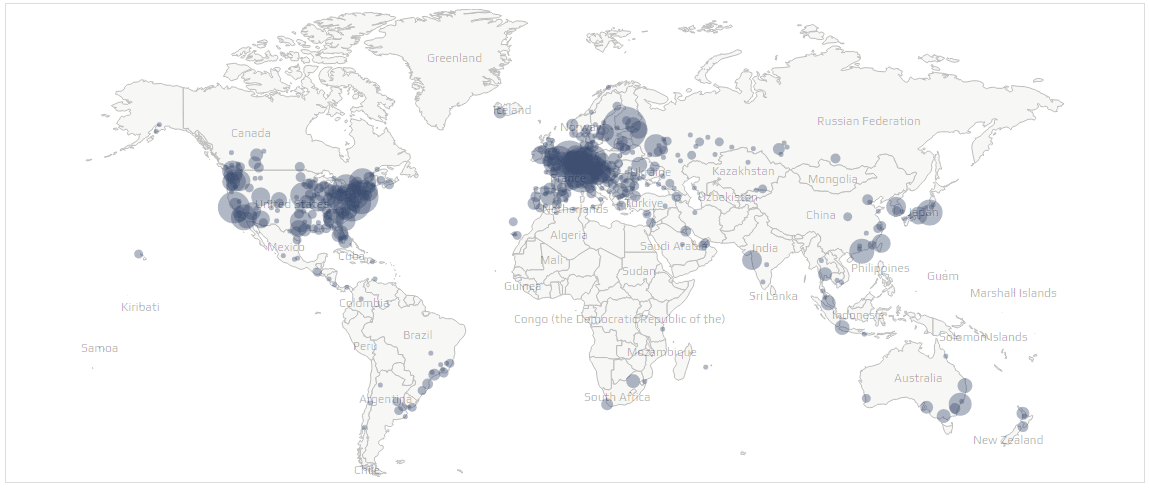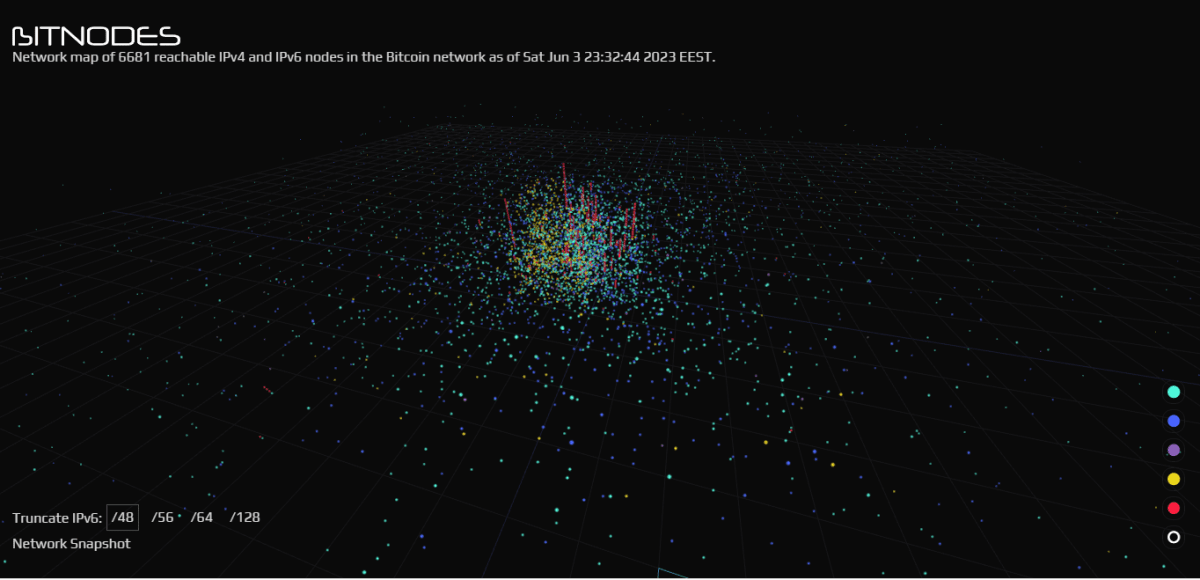Which Countries and Cities Lead in the Number of Bitcoin Nodes?

A Bitcoin node is a cornerstone of the world's first cryptocurrency, operating round-the-clock in complete harmony within the network of its own kin. Its purpose is to validate transactions and uphold the network's decentralization. With 45,000 nodes within the Bitcoin network, an exploration into their geographical dispersion makes for an intriguing analysis.
Anyone has the ability to establish a Bitcoin node. The legendary Satoshi Nakamoto's creation, a decentralized peer-to-peer network, welcomes all the enthusiasts keen on fostering its growth and development. All you need is a regular (preferably updated) computer equipped with a 1TB hard drive, a steady internet connection, and specialized Bitcoin client software, Bitcoin Core.
Of the 45,000 Bitcoin nodes, a mere 75% are public nodes that do not conceal their locations and utilize standard ports that can be used for identification. More than a quarter of nodes (over 11,500) opt for anonymity – these nodes mask their IP addresses, prefer not to reveal their geographical locations, and hide behind TOR in the .onion segment of the darknet, making it impossible to pinpoint their actual locations.
It's pivotal to comprehend that the deployment of full Bitcoin nodes is extremely important since only nodes of this kind carry out the direct validation of transactions in the network, hence earning the title of a fully validating node. Each of these nodes stores an entire copy of the blockchain, and interacts with a designated roster of peers who have earned the network's trust and aren't on the 'blacklist'.
In the past two years, the number of Bitcoin nodes has seen a fourfold increase. To give a perspective, in 2020, the network comprised just 11,250 nodes.
The “Habitat” of Bitcoin Nodes
Data from the portal bitnodes.io reveals that Bitcoin nodes are dispersed across over 5,650 cities in 129 countries. As mentioned earlier, 33,285 nodes (75%) are public, and their geographic location can be identified by analyzing open data.

Geographical clustering of Bitcoin nodes worldwide. Source: bitnodes.io
Among the five frontrunners in the quantity of nodes within the Bitcoin network, two are European nations: Germany and the Netherlands. Interestingly, China also finds itself among the leaders - a remarkable feat for an authoritarian communist country that forbids its citizens from engaging in any cryptocurrency operations. Yet, Bitcoin's creation was precisely to bypass such state or governmental prohibitions and restrictions.
The top ten countries boasting the highest amount of public Bitcoin nodes include:
- USA - 10,170 nodes (30.55%).
- Germany - 4,588 nodes (13.78%).
- Canada - 1,418 nodes (4.26%).
- The Netherlands - 1,417 nodes (4.26%).
- China - 1,408 nodes (4.23%).
- Russia - 1,295 nodes (3.89%).
- France - 1,225 nodes (3.68%).
- Great Britain - 1,135 nodes (3.41%).
- Japan - 653 nodes (1.96%).
- Australia - 650 nodes (1.95%).
Ukraine only finds itself in 24th place on the list, with 217 nodes (0.65%). However, it does feature in the top three nations where residents are most actively using cryptocurrencies.
When it comes to the leading cities, the data becomes even more fascinating. The world leader in the number of Bitcoin nodes is the seemingly unremarkable, provincial American city of Ashburn in Virginia. Despite only having a population of 44,000 people, it outnumbers the Bitcoin nodes in New York, Los Angeles, and other major American cities. Frankfurt, Germany, with a considerably smaller population than Berlin, Hamburg, Munich, or Cologne, takes second place. Helsinki, the capital of Finland, comes in third.
In total, the top cities for the number of public Bitcoin nodes are:
- Ashburn (USA)
- Frankfurt (Germany)
- Helsinki (Finland)
- Amsterdam (Netherlands)
- Tokyo (Japan)
- Moscow (Russia)
- Zurich (Switzerland)
- Dublin (Ireland)
- New York (USA)
- Sydney (Australia)
As we wrap up this topic, we encourage you to explore a snapshot of the spatial network map of Bitcoin nodes available on bitnodes.io. If you can, take a moment to enjoy the display—it's definitely worth your time!

Spatial network of Bitcoin nodes. Source: bitnodes.io
Recommended

